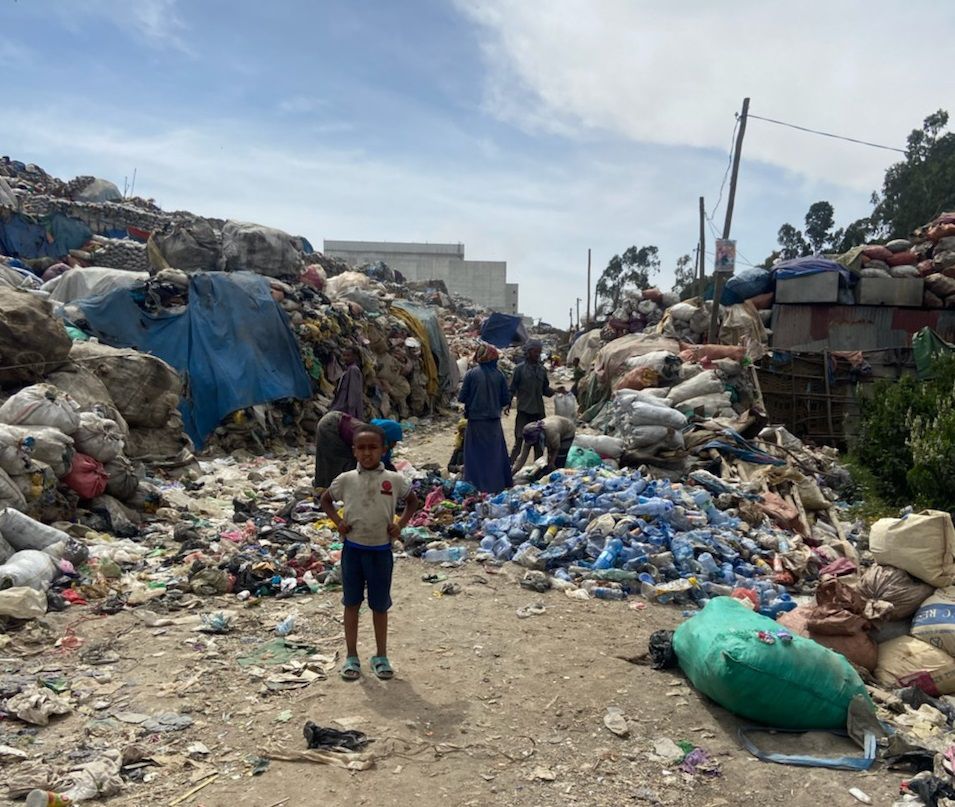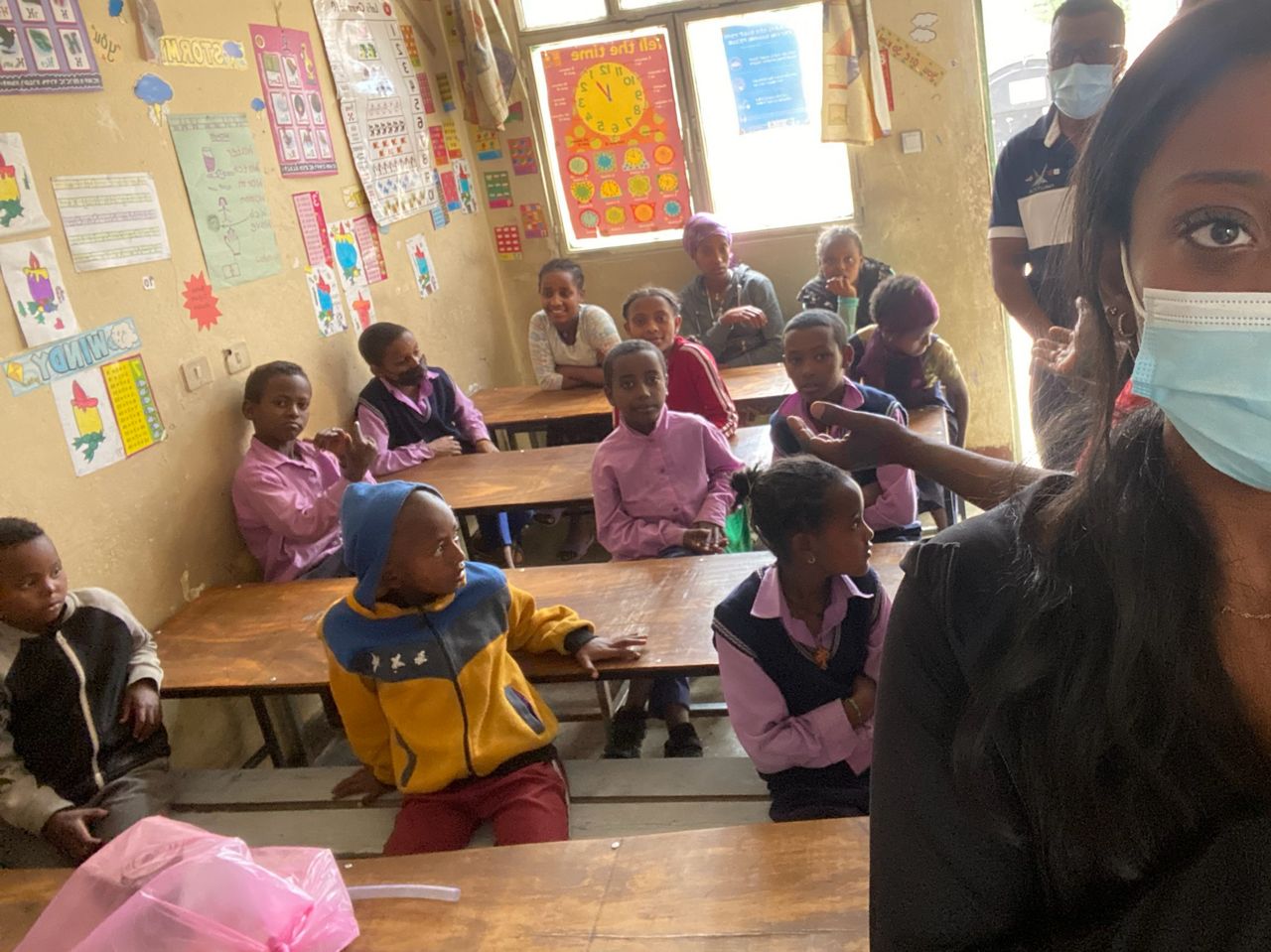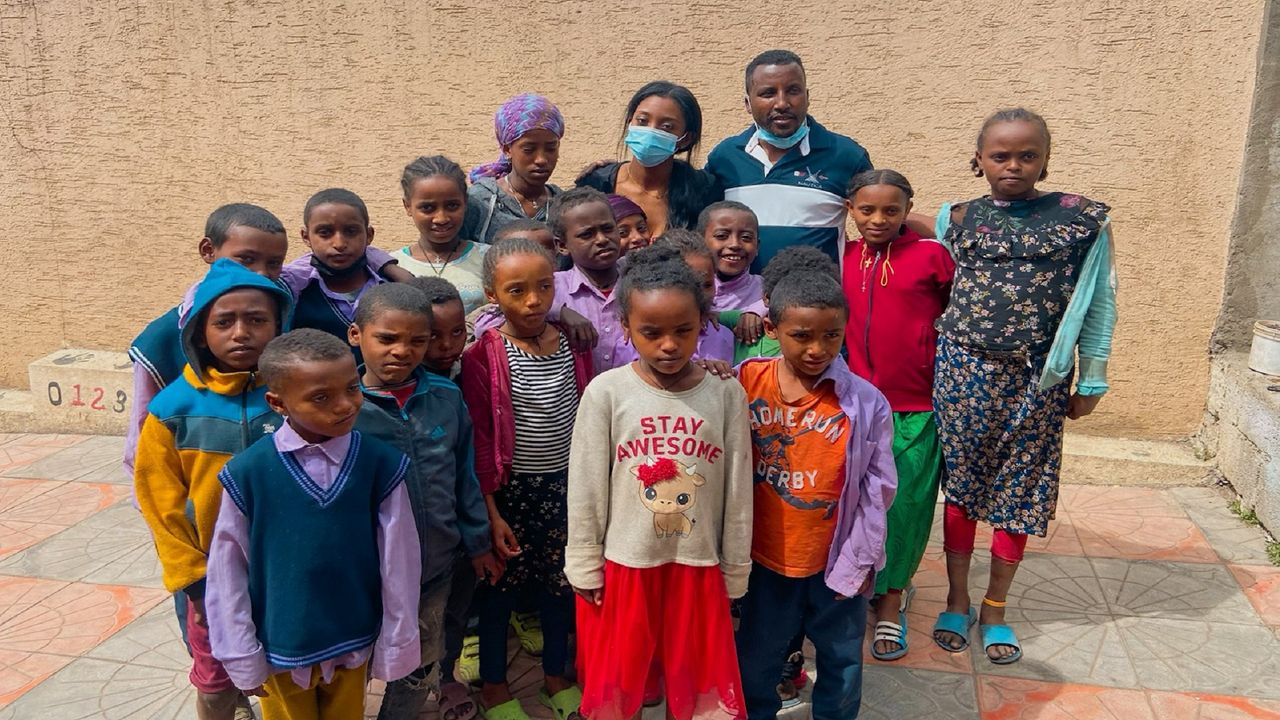CINCINNATI — Bitanya Derese said she considers herself one of the lucky ones.
What You Need To Know
- Bitanya Derese started The Grateful Foundation while in high school
- The organization raises money for Korah Kids, an organization supporting dozens of vulnerable children in one of the poorest parts of Ethiopia
- Derese, who was born in Ethiopia, decided to focus on providing everyday needs after a family trip last year
- The University of Cincinnati student has raised $4,000 so far and hopes to leverage university resources to increase donations
The 18-year-old was born in one of the poorest parts of Ethiopia. But she, her parents and two siblings immigrated to the United States in 2007.
Settling on Cincinnati’s west side, Derese attended private schools growing up including Seton High School, a prestigious Catholic institution in East Price Hill, close to where her uncle lives.

Because of her academic successes, Derese earned a full scholarship to the University of Cincinnati to study marketing. She’s also a Lindner Business Honors student.
The freshman is the first person in her family to attend college.
While still in high school, Derese felt an obligation to assist children still in Ethiopia.
Derese founded The Grateful Foundation. All money that the charity raises benefits Korah Kids, an organization which supports dozens of vulnerable children and their families in Korah, a highly impoverished area in the city of Addis Ababa. Derese’s family is from Addis Ababa, although not from Korah.
Since its formation, the charity has raised nearly $4,000.
“Obviously, just coming to this country was an opportunity that a lot of people don’t get, so I’ve always had a sense of gratitude that I’m even here,” she said. “I wanted to help others experience a dream of their own.”
Derese created the foundation while still a student at Seton.
During high school, she said she took part in every club and extracurricular imaginable — student government, a suicide prevention group and Spanish National Honor Society. She was also president of the Diversity and Inclusion Club and served as a chaplain as part of the Catholic school’s campus ministry.
But those things weren’t enough, Derese said. She was taking part in a lot of activities, but she wanted to “do more.”
“I realized that those didn’t really mean anything to me,” she added. “Most of the clubs I was only doing to put on my resume to get me into college. I wanted to do something with deeper meaning or purpose.”
At that point in her life, Derese hadn’t been back to Ethiopia, but she heard stories from her father about the conditions in the western African nation.
“That’s why my parents fought so hard, year after year, to help us ‘Win the lottery,’ as he called it, to come to this country,” Derese said.
She connected with Abera Legesse, who runs Korah Kids, after her father watched a story about him on Ethiopian television. Her father was brought to tears, Derese said.

“He told me that I had to find this man,” she added.
Derese reached out to Legesse on Facebook. The two communicate in Amharic — a local language in Ethiopia — about once a week.
Long-term goals for the program, Legesse said in a communication through Derese, are to help the children until they graduate from college or some form of vocational training.
The program sponsors 80 children.
Last winter, she joined her parents and brothers on a trip to Ethiopia to visit family. While there, she met the children who are in the Korah Kids program.
She described the trip as humbling.
Korah is an urban district with about 130,000 people. Located next to the city garbage dump, the urban slum has some of the most extreme levels of poverty in the world, according to Hope for Korah. The area suffers from issues ranging from poor sanitation and a lack of clean water to food scarcity.
Conditions in Korah are made worse, according to Hope for Korah, by the prevalence of malnutrition, tuberculosis, leprosy, HIV/AIDS, and other infectious diseases.
“I cried a lot,” Derese said of her visit. “I could have been that kid.”
Initially, Derese envisioned her donations going toward educational resources, like books and school supplies. But following the visit, she decided the funds should pay for everyday needs like food, water and shelter.
Legesse has discretion over the distribution of the funds.
“Rather than dedicate it to one specific thing, it’s kind of discretionary so we can help the kids and their families based on what their needs are right now,” Derese explained.
When she started the foundation, her goal was to raise a few hundred dollars and maybe collect a few books for children, Derese said. But that changed when she realized the full impact of the donations.
Derese raised $1,000 during her first semester at UC, mostly through word of mouth. UC’s African American Cultural & Resource Center also assisted the effort.
In the future, she’s exploring additional venues for supporting fundraising campaigns, including potential partnerships with some of the international organizations on campus.

“Bitanya’s story is one of generosity, gratitude, and empowerment,” said Ruth Seiple, director of the Lindner Business Honors program. “In a community where leadership is nurtured, (we’re) giving her a place to make an impact beyond the classroom and into her personal circles of influence.”
“What is unique about Bitanya in the honors program is her initiative as a freshman in her first semester on campus,” she added. “She has hit the ground running, wasting no time or opportunities.”
By the time Derese graduates, she said she hopes to grow donations to $20,000. But more importantly, she added, is raising awareness about the living conditions in Ethiopia.
As for the future, the marketing major isn’t yet sure what she wants to do after graduation — possibly fashion or a job in the corporate world, she said. Regardless of what she does, however, Derese plans to keep running the foundation for as long as possible.
“I want to keep spreading the world and trying to help the people of Ethiopia,” she said. “Whether it’s my 9-to-5 job or not, I always want to be doing something that gives me a sense of purpose in this world.”



